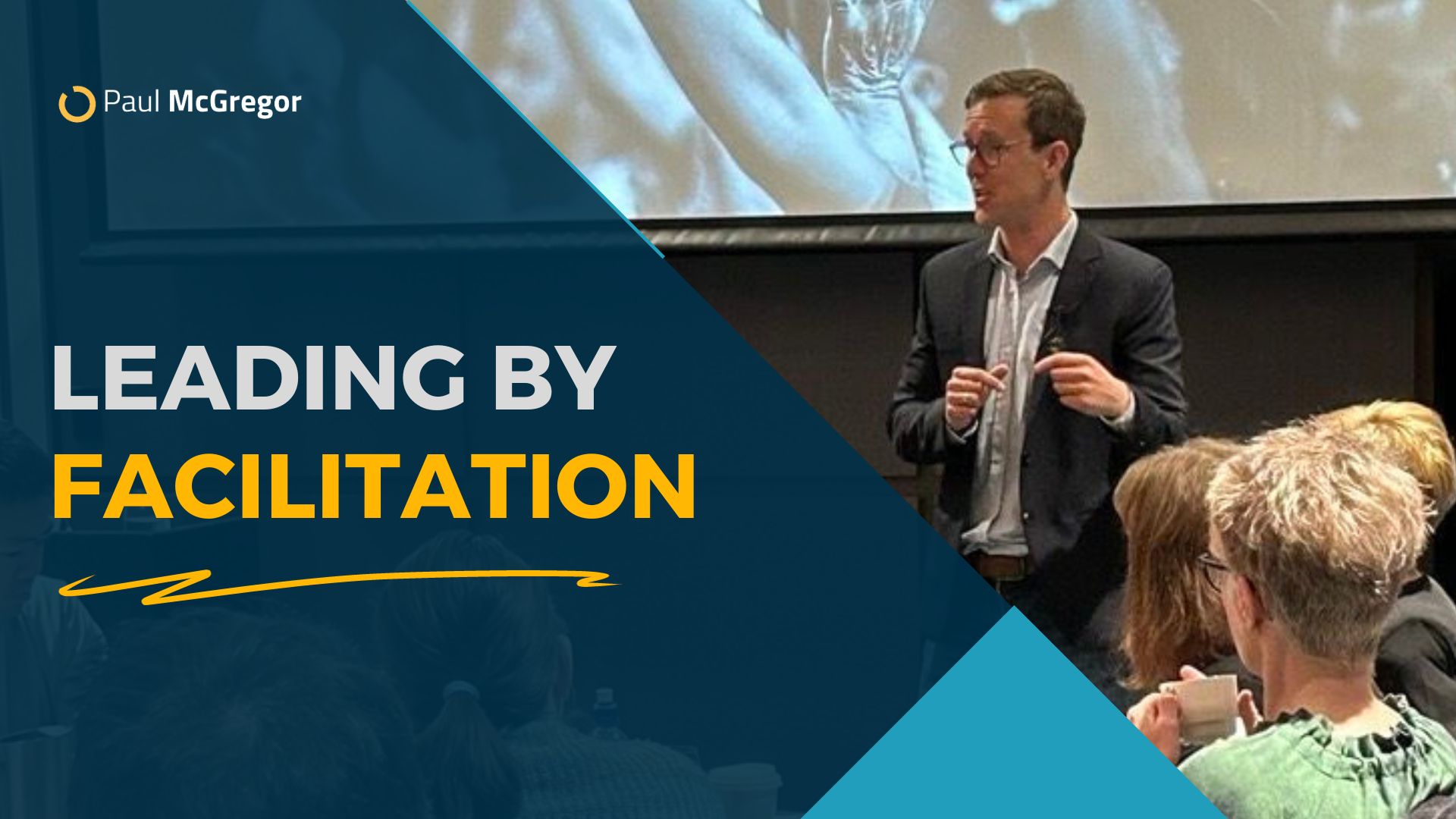Does your stomach drop when you receive feedback?

Recently I've been facilitating a series of taster sessions on Leading by Facilitation with some government agency teams.
Amongst the positive reviews, one comment stood out.
(It's funny how it's always the critical comments that stand out, isn't it? The critical comments cut us deeply because they highlight the gaps between who we want to be... and what we've actually done.)
In part of the workshop, I invited people to rate themselves from zero to five against four criteria using their fingers. I received this thoughtful and generous feedback on that part of the workshop:
"I found the "show of fingers" for the "Leading by Facilitation Model" a bit intimidating. I didn't think we had gone deep enough to bond as a group to ask everyone to show their thoughts about themselves in this way."
Ooooph, of course.
Here's me preaching about how we need to be careful about how we invite contributions... and yet I'm putting out an invitation that lacked care for this particular group. 😒
It's the irony of our expertise
The very reason I care about this stuff is because I've been burned in the past.
I remember once being asked to provide feedback on team culture, while at a table next to a General Manager who was currently considering whether to promote me or not. There was no way I was going to say what I really thought in that moment!
The irony of my expertise is that I need it more than anybody else.
I barely spoke as a kid. But I was also terrified of getting an answer wrong in class. My aunties still joke about Paul the A+ student who could barely string a sentence together. Every time they see me doing something in public they still seem shocked that I've outgrown that temperament.
And yet, I also haven't. Part of me still wants to sit in silence, on my own, creating things about group dynamics... without actually interacting with anybody in the real world, please and thank you.
We need feedback but we have to do it well
I've pondered a lot about feedback over the years - mainly because I've been so poor at giving it... and even worse at receiving it. I remember storming off whenever my parents gave me critical feedback on my classwork at school, even when I specifically asked for critical feedback.
I think there are two elements to manage with giving feedback.
1. Your intention
Why are you giving feedback? What is your mindset? What are you trying to achieve?
Feedback that aims to hurt, minimize, regulate or control isn't really feedback. It's manipulation. Good feedback comes from a place of love, care and curiosity.
2. Your technique
How are you giving feedback? When, where and how? What words are you using? How ready is the receiver to hear what you have to say?
Good intention will mean little if you give feedback through the wrong medium, at the wrong time, or using the wrong words. I remember finding a colleague in tears one day who had done just that. She was gutted to realise the hurt caused by a well-intentioned feedback email.
You might have heard about the feedback sandwich technique where you squeeze your critical feedback in between some positive feedback. Personally, I think consent is more important than hiding your critical feedback within some positive feedback. Ask people how they prefer to receive feedback. Check whether they are open to receiving it.
It's a bit like planting plants in the garden. We first need to ensure the soil is rich in nutrients and water. First we must prepare the ground for feedback.
Stomach dropping feedback
Let's come back to the workshop feedback I mentioned at the start. I'm happy to say that there was no stomach drop when I read the comment. In fact, I remember smiling and going 'duh'. I knew from the context and from the giver that the feedback was an act of love - a gift to receive with appreciation.
What's your typical reaction to critical feedback? Does it ever make your stomach drop? I'd love to hear your reflections on this critical aspect of facilitating change.